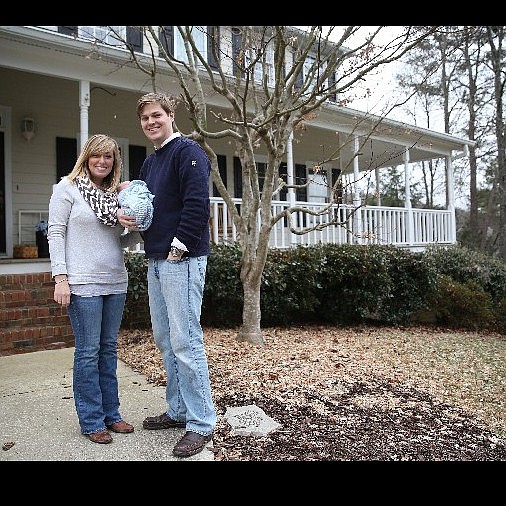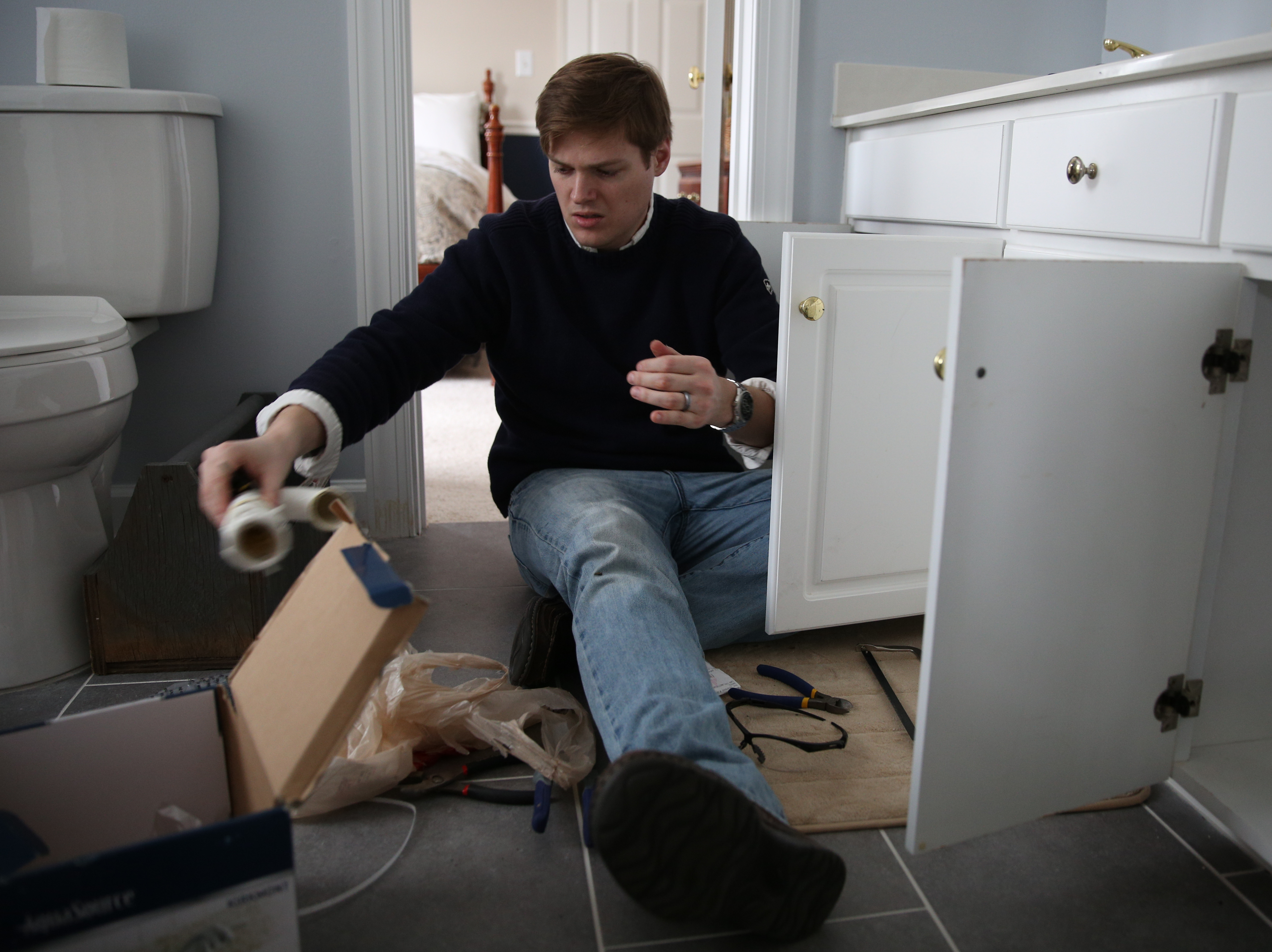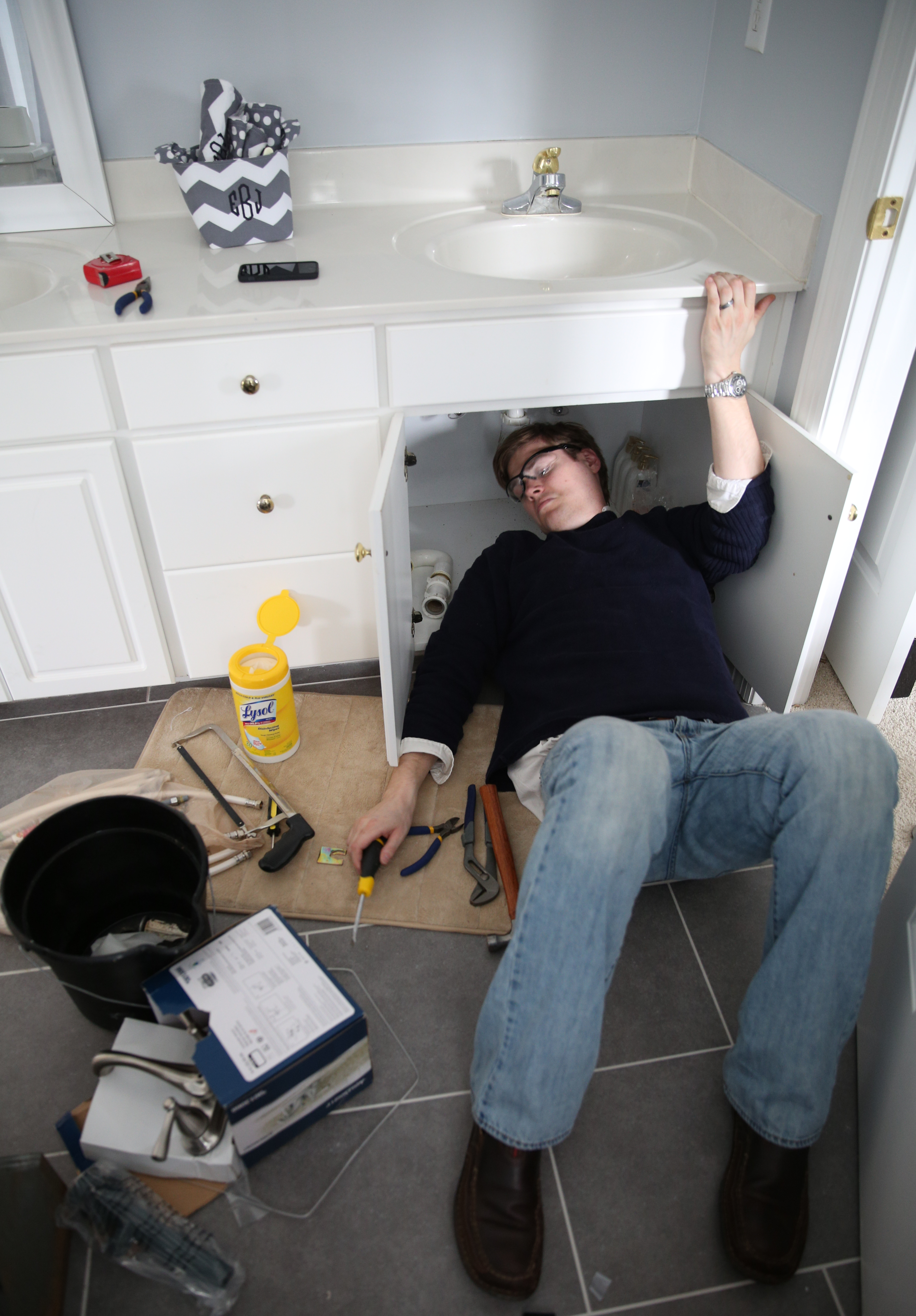Seven months after buying his first house, 29-year-old AJ Bembry wryly remembers a conversation with one of the mortgage brokers who was fighting for his business.
The broker said he could easily qualify Bembry for a $300,000 mortgage. That's not an issue, Bembry remembers him saying. But, the broker added, if you find something you really like for $600,000, I could probably get you into that too.
"And I'm thinking, I can't afford to eat in a house that price," Bembry said. "I can't even heat a house at that price. And that's where I think a lot of people got into trouble. We made sure what we bought was based on a percentage of our income, not what we qualified for."
Bembry and his wife calculated what they wanted to pay for a house based on what would happen if one of them lost their job. Even on one income -- or one-and-a-half incomes, if someone took a temporary survival job -- they wanted to be able to afford the house.
"Perhaps we were overcautious," Bembry said. "But I'd rather be overcautious than get bitten and have our house foreclosed on or have to move to another town."
Born in 1984, Bembry falls on the early end of the generally accepted 1982 to 2000 birth year range for the millennial generation. But his attitude toward home ownership is quintessential millennial thinking. Overall, millennials are the most financially conservative generation since the Great Depression, a new study by UBS found in January.
These 20- and 30-year-olds prefer to save rather than invest. And they've ditched the you-must-buy-a-house-at-23 mindset of past generations -- instead renting longer and buying carefully, if at all.
"I'm a first-time home buyer at the age of 29," Bembry said. "In generations past I'd be old, but it's somewhat common for folks my age now. In fact, I know a handful of people who bought a house, then sold their house and now they rent."
Most investors keep about 23 percent of their portfolios in cash. But the average millennial's portfolio is a whopping 52 percent cash, according to USB Investor Watch. Millennials who watched the recession destroy nest eggs, force foreclosures and layoff workers aren't jumping at the chance to buy a house in their early 20s.
"There's a perception that buying a house isn't a worthwhile investment," said Manuel Martinez, property manager at Chattanooga homebuilder Bell Development. "There's almost this stigma that 'If I lose my job, the first thing that will happen is my house will go into foreclosure.' And that's really a misconception. It's still a great source of equity."
The median age of a first-time home buyer is 32 -- and that's been almost unchanged since 1996, according to the Federal Housing Finance Agency. The median age of repeat homebuyers -- 38 in 1996 -- jumped to 42 in 2012, according to the agency.
Twenty-five-year-old Chattanooga entrepreneur Moises Ortiz understands that philosophy. But he and his wife are, for now, renting contentedly.
"I know what I'm paying in rent I'd be paying for a mortgage and I know I should use that as an investment and actually own something," he said. "That's true. The only thing is risk. For me and my wife, it's risk. And I'm a risk taker, but when it comes to putting my wife's money on the line as well -- because we'd buy a house together -- it's not something I'm willing to risk."
The perception of homeownership as a risky investment is a 180-degree turn from the baby boomers' attitudes, and has been fueled by the recession's soaring foreclosure rates. U.S. foreclosures peaked at 2.9 million in December 2010, according to online market tracker RealtyTrac. That dropped to about 1.3 million by year-end 2013, the company reported. Within 50 miles of Chattanooga, about 175 houses are currently in foreclosure, according to Crye-Leike.
SHIFTING TIDE?
But just because millennials are hesitant to buy houses doesn't mean they're not ever going to buy, Martinez said. As the overall economy recovers, the appeal of home ownership is growing as well.
But millennials who are buying homes know what they want. They're not afraid to wait for the right home, at the right price, with the right amenities.
"We realized that for our first-time home buyers, at our product in the $200,000 price point, people wanted to see the same amenities of a $350,000 or $400,000 home," Martinez said. "The houses needed to have a wow factor. We needed to make an emotional connection with the buyer -- that's my house."
About three years ago, Bell Development recognized that trend and shifted the design of its homes, Martinez said. The company focused on craftsman-style homes with amenities like granite countertops in the kitchen and bathrooms, hardwood floors, stone fireplaces and a Jacuzzi.
"It's quality space, not just a bunch of space," said Tony Griffy, owner of Artisan Construction. "[Millennials] have a sense of style and there does seem to be a tendency toward smaller homes. I like it. I'd rather have someone take the money they'd have put into a 5,000-square-foot home and build a 2,500-square-foot home that has character."
Young home buyers also tend to care less about location than other buyers, said Tommy Austin, with Austin Real Estate.
"So neither are they flocking into the cool, eclectic neighborhoods, nor are they necessarily holding out for conventionally acceptable neighborhoods," Austin said. "They're willing to step out into some new areas and buy the right house in a location that others might view as questionable, and wait it out."
Overall, Austin added, the improving economy is encouraging buyers in all age groups to pull the trigger on a new home, not just millennials.
Last year, Chattanooga home sales rose to the highest level since 2007, according to the Greater Chattanooga Association of Realtors. The 7,247 units sold in 2013 is an 8.4 percent jump over 2012, but still 11 percent less than Chattanooga's all-time sales peak in 2006.
Chattanooga real estate agent Donnette Moore said she's impressed with the millennials homebuyers she's worked with, because they're smart with their money. She sold 83 houses in 2013, and about 15 of those were to millennial, first-time buyers, she guessed.
"They're calling, they're preapproved, they've got money saved for a down payment. I love my young homebuyers," she said.
Usually millennials are looking at homes priced around $150,000 or less, she added.
"They're cautious, but they're more educated," she said. "They've got their ducks in a row before they start. They lived and learned. Everyone thought you could do anything to buy a house and you could. But they just know times are different."
Contact staff writer Shelly Bradbury at 423-757-6525 or sbradbury@timesfreepress.com.




